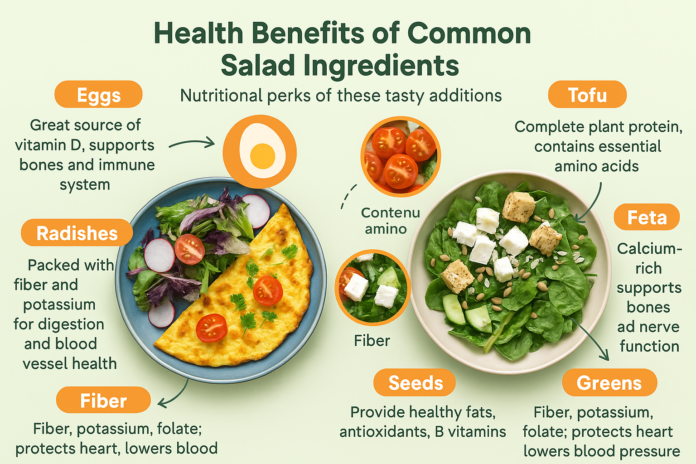What is Menopause?
Menopause typically begins when women are in their mid-40s, when estrogen levels begin to decline. Menopause can last anywhere from 4 to 10 years (every woman is different!), and that drop in estrogen can lead to symptoms that may include hot flashes, brain fog, weight gain, insulin resistance, and mood swings.
Hot flashes are the most common menopause-related symptom experienced by women. Hot flashes are defined as a sensation of warmth, often accompanied by sweating, flushing, palpitations, and sometimes anxiety.
Here are four food categories that may help you navigate menopause with greater ease:
1. Phytoestrogen-Rich Foods

Phytoestrogens are plant compounds that can mimic the effects of estrogen in the body, offering a mild, natural alternative to help balance hormone levels.
- Examples: Soy products (tofu, tempeh, edamame, soy milk), flaxseeds, sesame seeds, and certain beans and legumes (like chickpeas and lentils).
- How they help: These foods may help reduce the frequency and severity of hot flashes and night sweats. Some research also suggests they could support bone health and cardiovascular well-being.
2. Calcium and Vitamin D-Rich Foods

Bone density naturally declines after menopause due to reduced estrogen. Consuming adequate calcium and vitamin D is crucial for maintaining strong bones and reducing the risk of osteoporosis.
- Examples: Dairy products (milk, yogurt, cheese), fortified plant-based milks, leafy green vegetables (kale, spinach), sardines, and fatty fish (salmon, mackerel, for vitamin D).
- How they help: Calcium is the primary building block of bones, while vitamin D is essential for calcium absorption. Together, they help fortify your skeletal system.
3. Omega-3 Fatty Acid Sources

Omega-3s are renowned for their anti-inflammatory properties and their benefits for heart and brain health, both of which are important during menopause.
- Examples: Fatty fish (salmon, tuna, mackerel, sardines), flaxseeds, chia seeds, walnuts, and omega-3 fortified eggs.
- How they help: These healthy fats can help manage mood swings, reduce the frequency of hot flashes, and support cardiovascular health, which becomes a greater focus post-menopause.
4. Whole Grains and Fiber-Rich Foods

Maintaining stable blood sugar levels and supporting gut health can have a ripple effect on overall well-being during menopause. Fiber also plays a role in managing weight, which can influence symptom severity.
- Examples: Oats, brown rice, quinoa, whole wheat bread, fruits, vegetables, and legumes.
- How they help: The fiber in these foods aids in digestion, helps regulate blood sugar, and promotes satiety, which can assist with weight management. A healthy gut microbiome, supported by fiber, can also influence hormone metabolism.
Remember, a balanced and varied diet is key to supporting your body through menopause. While these foods can be beneficial, always consult with a healthcare professional or a registered dietitian for personalized dietary advice and to discuss all your menopause management options.
